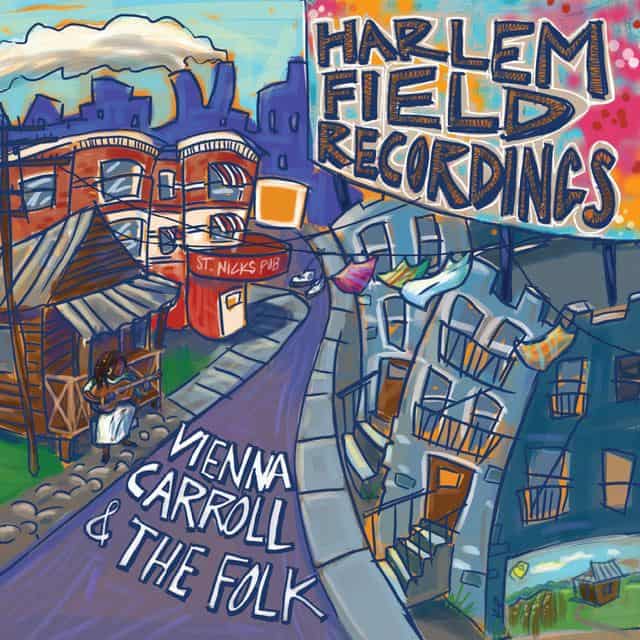The blues, according to B.B. King, is about survival, and if there’s a list of people who know about both the blues and survival, King’s got to be near the top. The blues, we learn from King, isn’t about being beaten down, it’s about getting back up again.
Singer Vienna Carroll knows about blues and survival, too. And she knows history, which her new album, Harlem Field Recordings, is full of. Carroll has written plays and contributed to a museum exhibit about African American life in pre-Emancipation America. She graduated from the African American Studies program at Yale University. It’s also worth noting that her grandmother played guitar with country star Minnie Pearl. There’s a strength in her voice and a richness in her blood.
Harlem Field Recordings has history and survival by the bushel. It’s simple and it’s deep. It’s wise and it’s relatable, smart and soulful. It’s an easy listen, but not one to be taken lightly, as steeped in the past as it is modernity. The album is packed with references. Not just in the songs – Carroll and her tight little band play tunes penned by Willie Dixon, “Son” House and Robert Johnson, along with her own songs and some whose authors are lost to history – but in the musical telling of the tales. The album touches on country and gospel and riffs on Gershwin, Rogers and Hammerstein, Jimi Hendrix and the Stylistics, to name a few.
Carroll displays a storyteller’s versatility right off the bat. The first track opens with a cry that quickly brings to mind the strawberry saleswoman in Porgy and Bess, but she’s soon supplanted by an adolescent boy (still voiced by Carroll) selling candy on the subway, as if to say, the times, they ain’t a-changed. Time remains suspended with the country two-step “You Better Mind,” then moves easily into Johnson’s “Come On in My Kitchen.” Here, as with Dixon’s “I Just Want to Make Love to You” the switch from the original vantage to a female narrative is easy. Carroll’s aim is a humanist one, and when it rains, it rains on everyone.
A trio of prison songs serve as the centerpiece for the record. “No Mo Freedom” is a variation on the Parchman Farm blues, given a staggering delivery without accompaniment. The band kicks in with a contemporary groove for “Dangerous Blues” and “Do Berta,” slyly contemplating cheating and killing. The second half of the album includes some uplifting gospel, a beautiful, slave-era lullaby with a brief, professorial introduction and a killer take on “Son” House’s “Grinnin’ in Yo Face.” The closing “Singin Wid a Sword in Ma Han” is downright inspirational.
The band is propelled throughout by the light precision of Newman Taylor Baker, who has drummed with a number of avant-garde jazz luminaries but here sticks to shuffle and swing on the washboard. Guitarist Keith Johnson is well-versed in a number of blues styles, helping along the changing scenes, and Stanley Brooks provides bounce while maintaining footing, with guest string players rounding out some of the cuts.
Survival can feel like a new game, but it’s been around as long as people and other things have been living, and singing has long been a way to make it through the storm. Times seem right right about now to sing along with Vienna Carroll.










